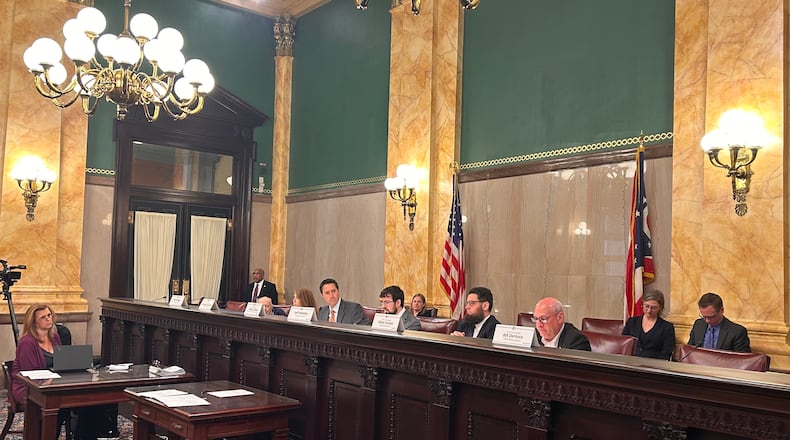Issue 1 is an amendment that, if approved by a simple majority of Ohio voters this August, would require a 60% vote threshold for all future amendments to the state constitution while making it harder for citizen coalitions to get an amendment proposal on the ballot.
The complaint is the second filed by Issue 1 opposition campaign One Person One Vote. The first suit, still under consideration, questions the legality of conducting an August special election entirely.
This lawsuit, however, is a formal request for the ballot board to reconvene and adopt new language. Its text echoes concerns that were already expressed by One Person One Vote’s legal representative Don McTigue and the ballot board’s two Democrat members during last Thursday’s meeting.
Those parties argued that Issue 1′s adopted title, “Elevating the standards to qualify for and to pass any constitutional amendment,” contained leading language, chiefly in the word “elevate.” McTigue proffered words like “modify” or “change” in its place, but was ultimately ignored by the board’s Republican majority who approved all of Issue 1′s ballot language.
The lawsuit argues that the language should tell the voter how a passed Issue 1 would change the law. It also points out several other aspects of perceived omissions and specific syntax and argues that, together, the issues make the ballot language “invalid.”
After last week’s meeting, LaRose told reporters that his goal was to explain the proposed amendment in as few words as possible.
“The actual amendment is available for people to read,” LaRose said. “Putting a ton of words on the actual ballot is confusing to people in and of itself.”
LaRose’s office, when asked for comment on the lawsuit, said it does not comment on litigation. Ohio’s Attorney General Dave Yost and his office will be tasked with responding to the complaint.
About the Author

